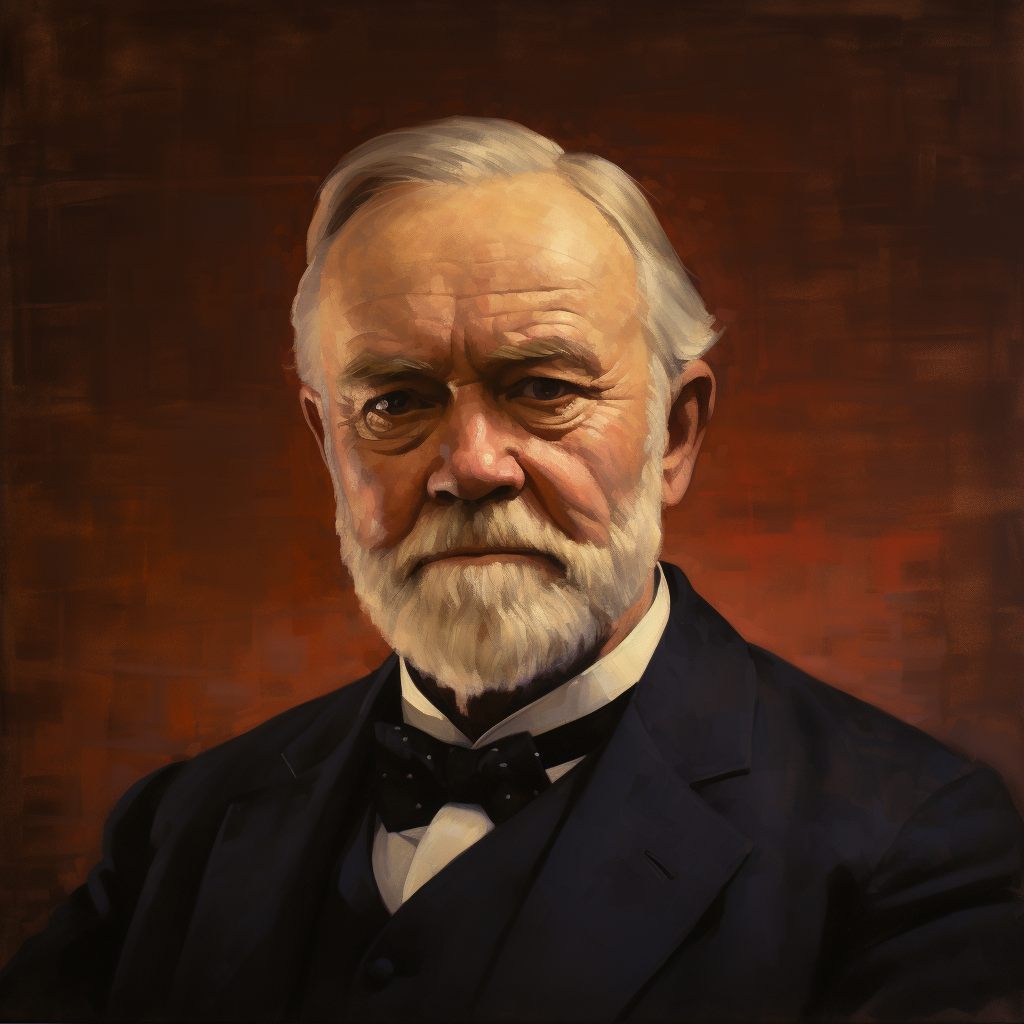
What business lessons can we learn from Andrew Carnegie?
Introduction
If you want to know how to make money and do good things with it, look at the life of Andrew Carnegie. He was born into poverty in Dunfermline, Scotland, 1835 and immigrated to America when he was 13. Initially, he worked as a bobbin boy at a cotton mill before becoming a telegraph operator for Western Union. Carnegie’s next job led him into the railroad business, where he worked up to become superintendent of the Pittsburgh Division of Pennsylvania Railroad Company by age 31. In 1867, he founded his own company called Carnegie Steel Company, which eventually grew into U.S. Steel after he retired from active management in 1901
Andrew Carnegie was supposedly born in a humble cottage in Dunfermline, Scotland.
Andrew Carnegie was supposedly born in a humble cottage in Dunfermline, Scotland.
His parents were poor, and he was the youngest of eight children. They moved to America when Andrew was just 13 years old and settled in Allegheny City (now part of Pittsburgh), Pennsylvania. The family could afford this move because his father had been hired by a local iron mill as its manager after working on a canal project for them.
In 1848, Carnegie began his first job- running messages between telegraph stations for Western Union Telegraph Company at age 12! This job gave him access to newspapers worldwide, which he read avidly. It also helped him learn English quickly enough that after only two years living in the United States, he could write articles on economics for newspapers like The Pittsburg Dispatch & Chronicle under the pen name “Silent Partner.”
He immigrated to America at 13 and had to work hard to get an education and a job.
Carnegie was born in Scotland and immigrated to America at 13. He worked hard to get an education and a job. Before becoming an entrepreneur, he was a bobbin boy in a cotton mill, messenger boy for the Pennsylvania Railroad, assistant telegraph operator, newsboy, and clerk in a telegraph office.
He believed that “the man who dies rich dies disgraced” because he wanted people to remember him as someone who cared about others more than money or fame.
He worked menial jobs at first before rising through the ranks at the Pennsylvania Railroad.
Andrew Carnegie began his career at the Pennsylvania Railroad as a messenger boy. He was promoted to telegraph operator and then assistant superintendent of the railroad. In 1853, he became superintendent of the railroad.
In this role, Carnegie learned everything about how a large corporation operates and what it takes to succeed–from employees’ needs to customer satisfaction levels. This knowledge served him well when he started his business later in life!
In 1867, he started his own company, Carnegie Steel Company, which eventually became U.S. Steel after his retirement in 1901.
In 1867, he started his own company, Carnegie Steel Company, which eventually became U.S. Steel after his retirement in 1901. The company was the first billion-dollar company in the world and was also considered the largest manufacturer of steel products in America.
Carnegie made great efforts to improve the lives of his workers, including giving them affordable housing and access to education for their children.
Carnegie’s workers lived in company towns, where they were provided with housing, schools, and other amenities. He also helped establish libraries throughout America. Carnegie believed education was the key to success; he wanted to help his workers get an education for better lives.
Carnegie often gave away large sums of money anonymously but generously helped many causes, including the construction of Carnegie Hall in New York City.
You might not be able to give away nearly as much money as Carnegie did, but you can help those in need in other ways. You could donate to your favorite charity or volunteer with an organization that helps children. If you work for a company with a charitable arm, consider donating your time and skills instead of just giving them money.
As for Carnegie’s philanthropy, he often gave away large sums of money anonymously but generously helped many causes, including the construction of Carnegie Hall in New York City (named after him). He was also active in politics; he served on several committees related to labor issues during his lifetime and even ran unsuccessfully for Governor-General of Canada in 1887!
He advocated for peace between nations and believed that governments or individuals should never support war. However, he only paid little attention to domestic issues until late in life, when he campaigned for worker safety laws and funding for libraries throughout America (as well as Scotland).
Carnegie’s most notable achievement was his campaign for peace between nations. He believed that governments or individuals should never support war and worked towards this goal throughout his life. However, he gave little attention to domestic issues late in life when he campaigned for worker safety laws and funded libraries throughout America (and Scotland).
Andrew Carnegie showed that someone with humble beginnings can rise if they work hard enough.
- How to work hard
- The importance of education
- The importance of mentors, both formal and informal
- How to make your opportunities when they don’t present themselves (or aren’t readily available)
And finally, Carnegie’s success was primarily due to his being a good per



